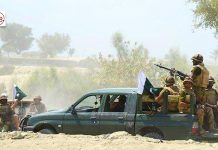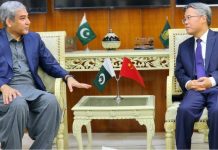The Tribute of Blood
Author: Alee Baluch
Martyrs’ Day is an annual day observed by nations to salute the martyrdom of soldiers who sacrificed their lives defending the sovereignty of their nation. Here is a list of countries which annually observes Martyrs’ Days.
In Afghanistan, the Martyrs’ Day is observed on September 8 or 9 (variable per Solar Hijri calendar). This day is the death anniversary of Ahmad Shah Massoud’s 2001 assassination. It commemorates all those who died fighting for Afghanistan.
Language Movement Day, also known as Language Martyrs’ Day, is observed in Bangladesh on 21 February to commemorate Bengali as a national language.
Bengali Genocide Remembrance Day is also observed on 25 March in Bangladesh to commemorate the victims of the Bengali Genocide of 1971 independence war.
Martyred Intellectuals Day is observed on 14 December in Bangladesh to commemorate those intellectuals who were killed by Pakistani forces and their collaborators during the 1971 liberation war on 14 December 1971.
In India Martyrs’ Day is observed on January 30, which is the anniversary of the assassination of Mohandas Gandhi who was assassinated in 1948. Martyrs’ Day is also observed across the Indian state of Punjab on March 23, on the death anniversary of Bhagat Singh.
Similarly, Tamil Eelam people also have dedicated a day ‘The Maaveerar Day or Heroes Day’ to commemorate the sacrifices of their fighters who fought for the freedom of Tamil homeland. A Tamil liberation fighter, Shankar, is said to have died on this day in combat in 1982. Since then the Tamil people observe 27 November as their Remembrance Day each year in Tamil homeland and across the world.
In Azerbaijan, the Martyrs’ day is marked on January 20, in the memory of those who were killed in the Black January.
16 September is observed as the Martyrs’ Day in Libya to remember the Libyans who were killed and exiled under Italian rule and those were killed in the revolution of 17 February.
In Balochistan, 13 November is observed as the Baloch Martyr’s Day by the Baloch nation in many parts of the entire world. The Baloch has a long history of sacrifices for their motherland and for their freedom struggle since the day when the Britain tried to harm the Baloch sovereignty.
Baloch have always fought the foreign invaders who stepped into the Baloch land with the intention of occupying Baluchistan. Whether they were Arab invaders, Mughals or Mongols, Baloch had stood and fought for the protection of Baloch sovereignty.
Whether the enemy was the English invaders or are Pakistani and Iranian occupiers, the Baloch nation did not budge an inch on its determination of defending its motherland and giving sacrifices for their freedom. Until this day Baloch are sacrificing their lives in the ongoing Baloch national struggle for an independent Baloch state.
Baloch nation has selected 13 November as the ‘Baloch Martyrs Day or Remembrance Day’ because of its historical importance and to honor the sacrifices of Mir Mehrab Khan, his comrades and every Baloch freedom fighters.
On 13 November 1839, the British imperialist invaded Balochistan. Hence, the war began between seven thousand English soldiers and three hundred Baloch freedom fighters. Mir Mehrab Khan and his comrades bravely confronted the enemy until the last drop of their blood.
The invaders were more powerful than Baloch in terms of sophisticated weapons and technology. In spite of having full knowledge of enemy’s strength, the Baloch freedom fighters did not surrender but stepped into the battlefield to embrace martyrdom for their motherland.
When Mehrab Khan was consulted by some of his friends (one of them was Mohammad Siddiq) not to fight the British Army because of their strength and sophisticated weapons, Mehrab Khan replied in these inspirational words, “I may not defeat the enemy but I can die for my motherland,” and he stood by his words and defended the Baloch sovereignty until his last breath along with his accompanied worriers.
Disclaimer: The views and opinions expressed in this article are those of the author and do not necessarily reflect the official policy or position of The Balochistan Post or any of its editors.






























